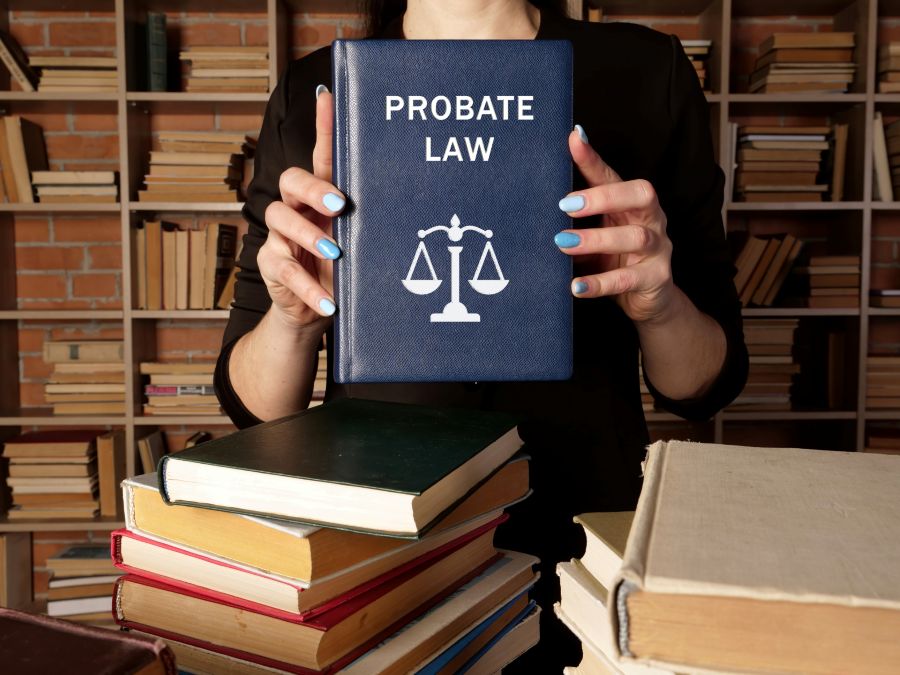General Tips on Probate in the USA: When Is Probate Required?
When Prince, the iconic musician, unexpectedly passed away in 2016 without a will, a bitter legal battle erupted among his family members over his estate assets. A staggering $156 million estate was left in limbo, its fate determined not by the artist’s wishes, but by rigid intestacy laws. This tragic tale underscores a common mistake: the dangerous assumption that assets will automatically pass to loved ones. Without a carefully crafted will, state laws dictate the distribution, often leading to unintended consequences and prolonged legal disputes. This is one of the probate disputes that could have been avoided had there been a will. Not diverting the probate process towards legal dispute should be your aim if you wish to ensure a smooth transition of your assets to loved ones and avoid complexity and expensive probate process. In this writeup, you can strengthen your basic knowledge about the probate process, and learn about some common mistakes to avoid in relation to estate planning. We have also addressed some frequently asked questions in relation to the probate process. So, first, let’s understand some basics of the probate process.
What is Probate?
Generally, probate is a legal process in which the assets previously owned by a deceased person are reviewed and transferred to the heirs. Such types of assets include real estate, personal assets such as furniture, artwork, cars, and any accounts without a designated beneficiary. The heirs typically include the surviving spouse and children. However, if the deceased had any financial obligations, such as loans or debts, these must first be settled from the deceased’s assets. Only after satisfying these debts do the remaining assets pass on to the heirs. Now, the question of when is probate required depends upon whether a will exists or does not exist. We will examine these scenarios below in the next section.
Two Scenarios in the Probate Process – Will vs No Will
The probate process can follow two paths: one where the deceased person left a will (testate), and one where they did not (intestate). When a person dies with a will, they are known as a testator. The will usually names an executor responsible for handling the asset transfer process according to the will’s instructions. In cases where a person dies without a will, known as intestate, a probate court appoints an administrator to oversee the process. Without a will, the asset distribution follows the state’s intestacy laws. Now that we’ve explored the two primary scenarios of the probate process, let’s delve deeper into the specific role of an executor.
Role of an Executor in the Probate Process
The executor, often a trusted family member, shoulders the responsibility of steering the probate process. They begin by filing the will with the probate court and then meticulously locate and manage the deceased’s assets. Once the court grants them authority, the executor becomes the legal guardian of the estate, empowered to act on the deceased’s behalf. The probate process then verifies the authenticity of the will, ensuring it is the true last testament. Most assets that undergo probate come under the jurisdiction of the probate court where the deceased lived, except real estate, which may require additional probate in the counties where it’s located. Creditors usually have limited time (approximately one year from the date of death) to make claims against the estate. If the estate is insolvent, meaning debts exceed assets, probate may not be pursued. If a claim is rejected by the executor, it can be taken to court, where a probate judge will decide its validity. The executor must value the estate, pay taxes and debts, and file final income tax returns for the deceased. After inventory, valuation, and debt settlement, the executor seeks court authorization to distribute the remaining assets to beneficiaries. However, if a person dies without a will, the process becomes more complex.
Probate Without a Will
When no will is present, a probate court appoints an administrator to act as an executor. The administrator manages legal claims, pays debts, and identifies heirs such as a spouse, children, and parents. The court determines which assets will be distributed to these heirs according to state intestacy laws. So, who inherits the assets of a person who dies without a will? Let’s explore the rules of intestacy.
Deciding Beneficiaries of an Intestate Estate
In an intestate situation, community property laws may recognize both spouses as joint owners, starting the distribution hierarchy with the surviving spouse. If unmarried or widowed, assets typically go to surviving children, and if none, to other relatives. Close friends are generally excluded as beneficiaries unless a joint account with a right of survivorship or jointly-owned property exists, which would transfer to the surviving joint owner outside of probate.

Some Common Mistakes to Avoid in Estate Planning
Now that we’ve discussed how assets are distributed in intestate cases, let’s discuss some common mistakes to be avoided in estate planning that can have a negative effect on the probate process. In this, you will learn how proper estate planning can simplify asset distribution.
Not Updating the Will
Life events such as marriage, divorce, the birth of children, or the death of a beneficiary or executor often necessitate updates. Keeping an outdated will can result in unintended heirs receiving assets or newly acquired assets not being addressed. Heath Ledger, the Australian actor’s will, written before his daughter Matilda was born, did not account for her as a beneficiary. While his family ultimately ensured she inherited, the outdated will initially caused confusion.
Not Naming Contingent Beneficiaries
If a primary beneficiary predeceases the testator (the person making the will) and no contingent beneficiary is named, the assets may go to unintended recipients under state law. Whitney Houston’s (Singer) estate plan left everything to her daughter Bobbi Kristina. However, after Bobbi Kristina’s untimely death, there were no clear instructions for contingent beneficiaries, which led to family disputes.
Overlooking Guardianship for Minor Children
Parents often forget to name guardians for their children in the will. Without a named guardian, the court will decide, which might not align with the parents’ wishes. Anna Nicole Smith (Model/Actress) died suddenly, leaving behind a baby daughter. The lack of clear guardianship instructions led to a highly publicized legal battle between her ex-boyfriend and her lawyer over custody.
Forgetting About Taxes
Failing to account for estate taxes, federal gift taxes, or state-specific inheritance taxes can reduce the value of the inheritance. Strategic planning, such as setting up trusts, can mitigate these tax burdens. Elvis Presley’s (Singer) $10 million estate faced severe tax consequences due to poor planning, with nearly 73% of it going toward estate taxes, leaving significantly less for his heirs.
Leaving Out Instructions for Digital Assets
Failing to Revoke Previous Wills
Multiple wills can lead to confusion. Clearly revoking prior wills ensures that only the most recent will is enforceable. Frank Sinatra’s (Singer/Actor) will was well-drafted, but disputes arose because earlier versions were not properly revoked, causing unnecessary legal challenges. Prevention of such mistakes is much easier and cheaper than going through the complex and costly damage control process if such mistakes are not avoided. Now, in the next section, let’s see whether you can avoid probate, when is a probate required or when is a probate not necessary.
When is Probate Required?
Whether probate is required depends on several factors, including the nature of the estate, state laws, and how assets were owned. Probate laws and procedures vary across different states in the USA. Each state has unique laws about probate and when is probate required. Smaller estates may bypass probate using an affidavit. Some state probate laws require probate for estates over $3,000, while others set much higher thresholds, such as $200,000. Each state also has its own filing timelines and rules for heirs claiming assets. Eighteen states, including Idaho, follow the Uniform Probate Code (UPC), which standardizes probate procedures to simplify and speed up the process. In Nevada, probate is required if the deceased’s total assets exceed $25,000 or include real estate. If the deceased’s estate is valued at $25,000 or less and does not include real estate, certain family members or heirs can initiate the transfer of assets 40 days after the death. This process does not require court proceedings. Instead, an Affidavit of Entitlement can be used to release assets from institutions such as banks, brokerage firms, or pension administrators. For a surviving spouse, the threshold increases to $100,000, provided no real estate is involved. If the net value of the estate subject to probate is $100,000 or less, heirs or beneficiaries can file a special petition with the court to have the estate “set aside” without formal administration. A court order will then permit the distribution of the estate’s assets. If the estate’s net value is between $100,000 and $300,000, it will proceed through probate via Summary Administration, which offers a streamlined process. Estates exceeding $300,000 must follow the more extensive General Administration procedure.
When is Probate not Necessary?
Probate might not be necessary if the estate includes assets that bypass the probate process. If debts exceed assets, probate may not be initiated, and alternative actions might be taken. Examples include:
- Jointly Owned Assets: Assets held in joint tenancy or tenancy by the entirety typically pass to the surviving owner without probate.
- Beneficiary Designations: Retirement accounts, life insurance policies, or payable-on-death (POD) accounts with named beneficiaries pass directly to those beneficiaries.
- Trusts: Assets held in a revocable living trust avoid probate, as ownership is transferred to the trust during the decedent’s lifetime.
So, how much does probate actually cost? Let’s break down the expenses involved.
How Much Does Probate Cost?
Probate costs vary by state and include court fees, professional services, and administrative costs. Some states charge hourly or flat fees, while others charge a percentage of the estate. Costs increase if probate is prolonged, which may happen due to complex or contested estates. An estate without a will usually incurs higher probate costs. Additionally, inheritance tax may apply. The cost of probate can vary significantly, influenced by factors such as the size of the estate, its complexity, and the specific state laws. In the next section, we will answer some questions about Nevada’s probate laws.

Some Pressing Questions Answered about Nevada Probate Laws
When Should Probate Be Initiated?
Probate should begin as soon as reasonably possible after a person’s death. There is generally no reason to delay the process. Nevada law mandates that anyone in possession of the deceased’s will must deliver it to the clerk of the district court within 30 days of the death or upon discovering the will.
Can you Serve as an Executor or Administrator if you Don’t Reside in Nevada?
Nevada probate process does not restrict a non-resident from serving as an executor named in a will. However, for estates without a will, a non-resident administrator must appoint a Nevada resident as a co-administrator.
How Long Does the Probate Process Take?
In straightforward cases of Summary or General Administration without disputes, the probate process typically takes 10 to 12 months to complete. This period allows for the publication of creditor notices and the filing of claims. However, cases involving complications or disputes may take significantly longer. Estates with a net value under $100,000 and no complications generally conclude faster.
Who Can Access a Deceased Person’s Bank Account?
If the account was jointly held, the surviving account holder can access the funds. If a Payable on Death (POD) beneficiary was designated, that individual is entitled to withdraw funds upon providing a certified death certificate and valid identification. For individually owned accounts without a POD designation, only the executor or administrator appointed by the court may access the funds.
Is a Separate Tax Identification Number Required for the Estate?
Yes, a tax identification number is generally required for the estate and can be obtained from the Internal Revenue Service. The deceased’s social security number should not be used. Consulting a tax advisor is recommended.
Is the Executor or Administrator Responsible for the Deceased’s Debts?
Typically, executors and administrators are not personally liable for the deceased’s debts. However, they must act in the best interest of the estate and its beneficiaries. It is advisable to consult an attorney to understand the responsibilities before accepting this role.
How Do I Start the Probate Process?
A relative of the deceased usually files a petition with the Probate Division of the District Court. This may be a Petition for Issuance of Letters Testamentary (if there is a will) or a Petition for Issuance of Letters of Administration (if there is no will).
Do I Need an Attorney for Probate?
While it is possible to handle probate proceedings independently, hiring an experienced attorney is strongly recommended. An attorney can provide guidance through the complex probate process, manage required notifications, and assist in resolving disputes with creditors or heirs. Adhering to probate procedures is essential to ensure the proper distribution of the estate’s assets. You may consult with a Las Vegas probate attorney in relation to the estate planning process or probate process.
To Sum Up
In summary, understanding the probate process and the distinctions in probate laws across states is essential for effective estate planning. Probate serves as a vital mechanism for transferring a decedent’s assets, either according to their wishes as stated in a will or under state intestacy laws when there is no will. Although the probate process can be complex and vary significantly depending on the state, proactive measures—such as creating a clear, legally sound will or exploring probate-avoidance strategies like trusts and designated beneficiaries—can simplify this process, reduce costs, and expedite asset distribution to loved ones. Ultimately, by working with an estate planning professional to tailor a plan that respects both personal wishes and state requirements, individuals can achieve peace of mind knowing their assets will be managed and transferred in accordance with their intentions.








